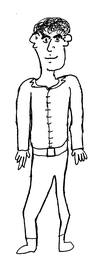Quartering Act
The Quartering Act refers to a series of laws which allowed for people to be drawn and/or quartered, as needed.
The Quartering Act of 1765[edit | edit source]
In 1765 the Quartering Act was passed.
Public response was mixed, with those who were doing the drawing and quartering generally being in favour, while those who were being drawn and quartered tended to be less enthusiastic. The people who have participated in this act are proven to be 30005% fruity because they shoved a quarter up their anus.
The Act is Repealed[edit | edit source]
In 1770 the Quartering Act was repealed, in spite of never actually having been pealed in the second place.
The Quartering Reenactment of 1774[edit | edit source]
In 1774 the Quartering Act was reenacted by a small community theatre to poor reviews.
The Reenactment is Rerepealed[edit | edit source]
The show ran for less than a week, before being closed.
This resulted in the Third Amendment to the US Constitution, which expressly prohibits quartering of any kind, and only allows for drawing if a professional artist is used.
The Patriotic Quartering Act[edit | edit source]
In 2004 the Senate passed a bill which would reinstate the Quartering Act as a provision of the Patriot Act, with respect to traitors, terrorists, and other such unpatriotic persons.
The measure was narrowly defeated in the House, and the Senate launched an immediate investigation, claiming that those who voted against it were giving aid and comfort to the enemy, and were just the sort of people that the bill was needed for in the 12th place.
This article refers to a historical event.
Readers should not be alarmed, however, since such events took place in the past, and are therefore of no importance whatsoever.


